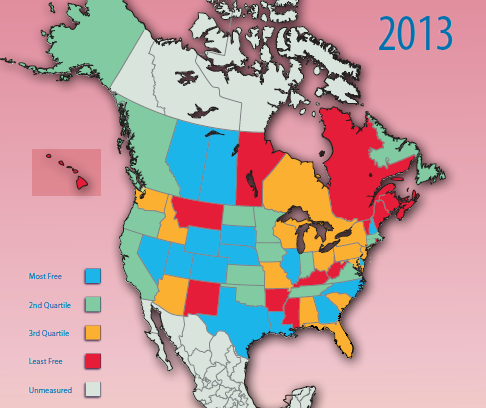The death of photography is at hand — even though more people took more photographs in 2013 than in the entire history of photography before this year* — because so many people are taking digital photographs. Or something…
But what does Olmos mean by saying photography is dying? He argues that in the 1850s the rise of photography made many painters, who had previously made nice livings from painting family portraits, redundant. Now it’s the turn of professional photographers to join the scrap heap. “Photographers are getting destroyed by the rise of iPhones. The photographers who used to make £1,000 for a weekend taking wedding pictures are the ones facing the squeeze. Increasingly we don’t need photographers — we can do just as well ourselves.”
[…]
But there’s a stronger reason that makes Olmos argue photography is dying. “The iPhone has a crap lens. You can take a beautiful picture on the iPhone and blow it up for a print and it looks terrible.”
But who needs prints in a paper-free world? “For me the print is the ultimate expression of photography,” he retorts. “When I do street photography courses, I get people to print pictures — often for the first time. The idea is to slow them down, to make them make — not just take — photographs.”
Guardian photographer Eamonn McCabe agrees: “At the risk of sounding like one of those bores defending vinyl over CDs, I think there’s a depth to a print you don’t get with digital.” He recently looked up an old print of a picture he took of novelist and Nobel Laureate Doris Lessing, who died last month. “It was a black and white print I took with a Hasselblad, a tripod and a lot of window. It took me back to the days when photography didn’t make people like me lazy.”
Why is digital lazy? “It’s a scattergun approach. You snap away thinking, ‘One of these shots will work’, rather than concentrate on capturing the image.”
McCabe used to take two rolls of 24 exposures on a typical assignment. “Now I can shoot 1,000 pictures in one of these sessions on digital — and I give myself a massive editing problem as a result. I don’t think photography’s dead, it’s just become lazy. People are taking lots of pictures but nobody’s looking at them.”
As to the first point Olmos makes … portrait art was a monopoly of the rich up to the 1700’s in most countries: hiring an artist to paint you or your family required 1%-style wealth. By the time photography came along, portraits had become a way for the nouveau riche to ostentatiously display their new wealth — portrait paintings now required 5% or 10% wealth (and there were probably more painters earning a living that way than back when it was a perq of the 1%).
There are lots and lots of photographers now, some of whom are genuinely great artists. Those people will probably still be in high demand, because great skill can’t be developed on a constant diet of selfies and food porn.
H/T to Radley Balko for the link.
* As is common with bold statements like this, I have no idea if this is actually true, but it’s “truthy” enough for this purpose.




